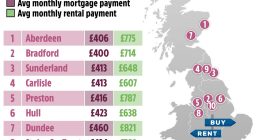
Amazon.com Inc., JPMorgan Chase & Co. and Berkshire Hathaway Inc. set out three years ago to join and transform health care. Instead, they struggled to solve even fundamental challenges, such as understanding what some kinds of care actually cost.
Haven, the joint venture they set up together in 2018 to use technology and find new ways to reduce costs for their combined 1.5 million employees, will end operations next month. The project cost the three companies roughly $100 million combined, people familiar with its budget said.
From its inception, Haven faced challenges obtaining data, staff turnover, fuzzy goals and unexpected competition, according to current and former employees and executives at Haven and the partner companies. Those factors doomed the partnership from early on, those people said.
Data was a central challenge. Haven struggled to aggregate and analyze information on health-care costs for the three companies’ employees. Data concerns from the partners and resistance from insurers stymied Haven’s efforts to determine how much the companies paid for medical care and why, the people said.
Haven isn’t the first venture to struggle with the lack of transparency in health-care costs and data, an issue that has long complicated government reform efforts and technology solutions. A new Trump administration rule, effective this year, is supposed to force greater disclosure of the rates negotiated between hospitals and insurers.









